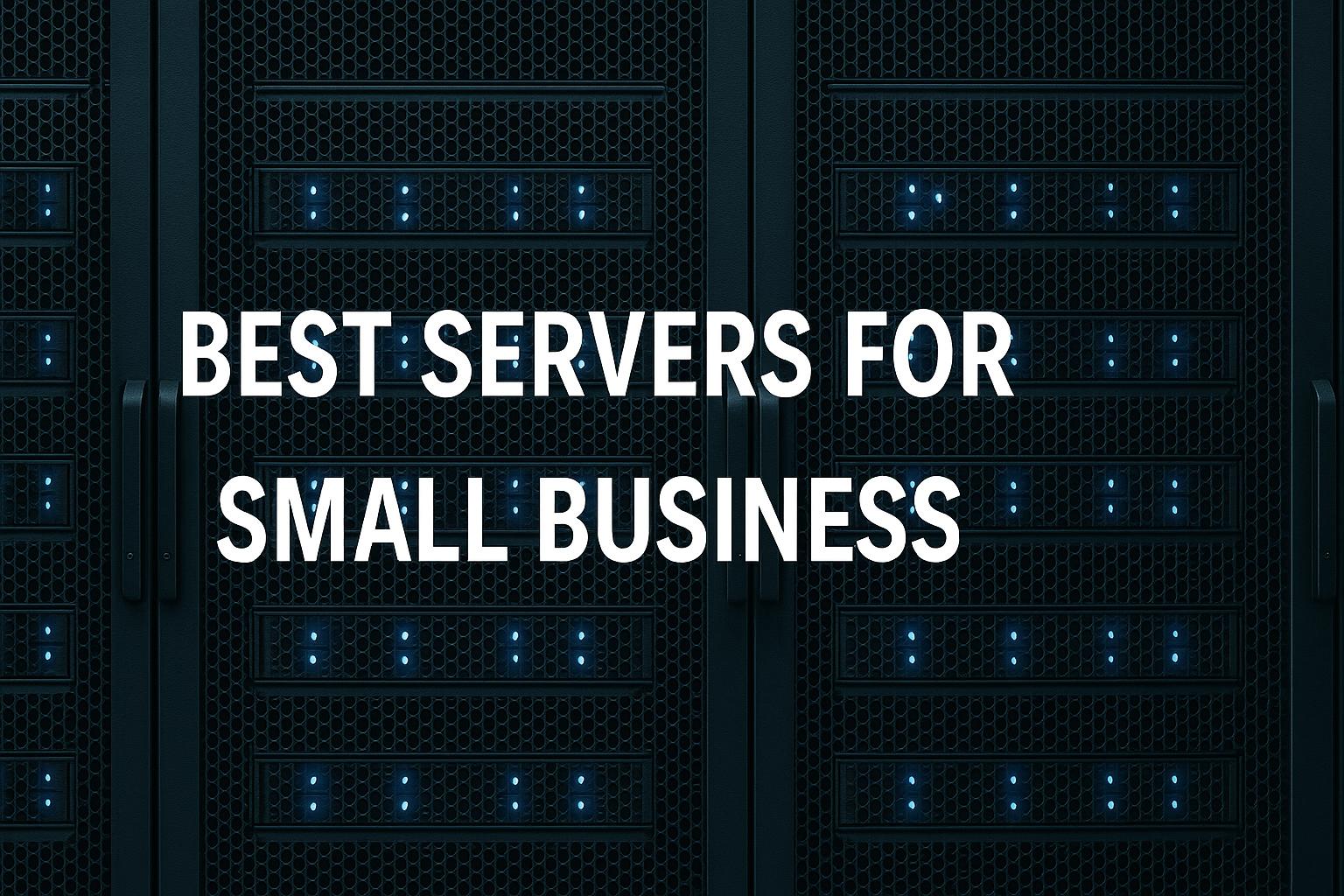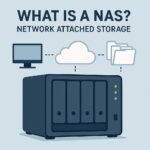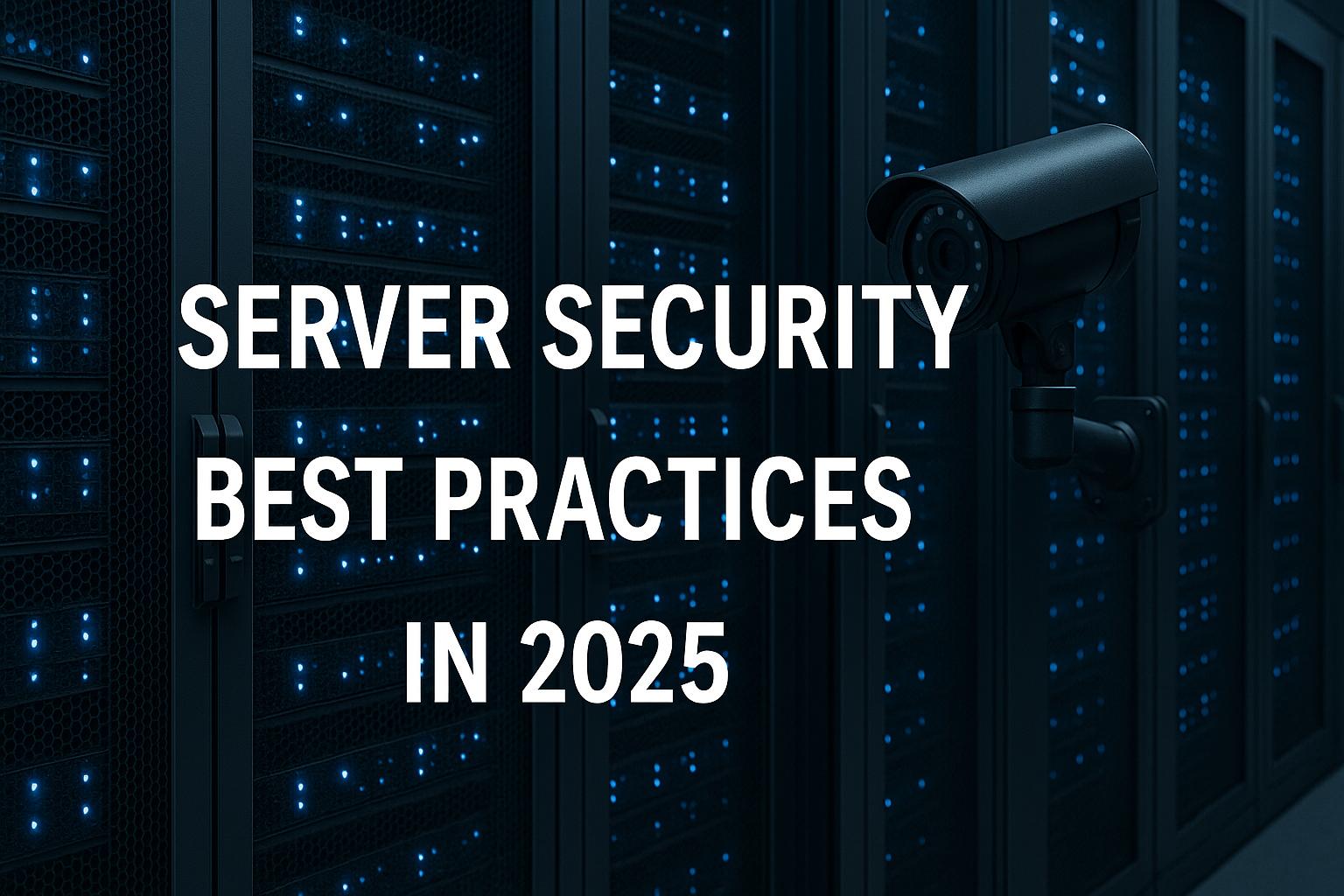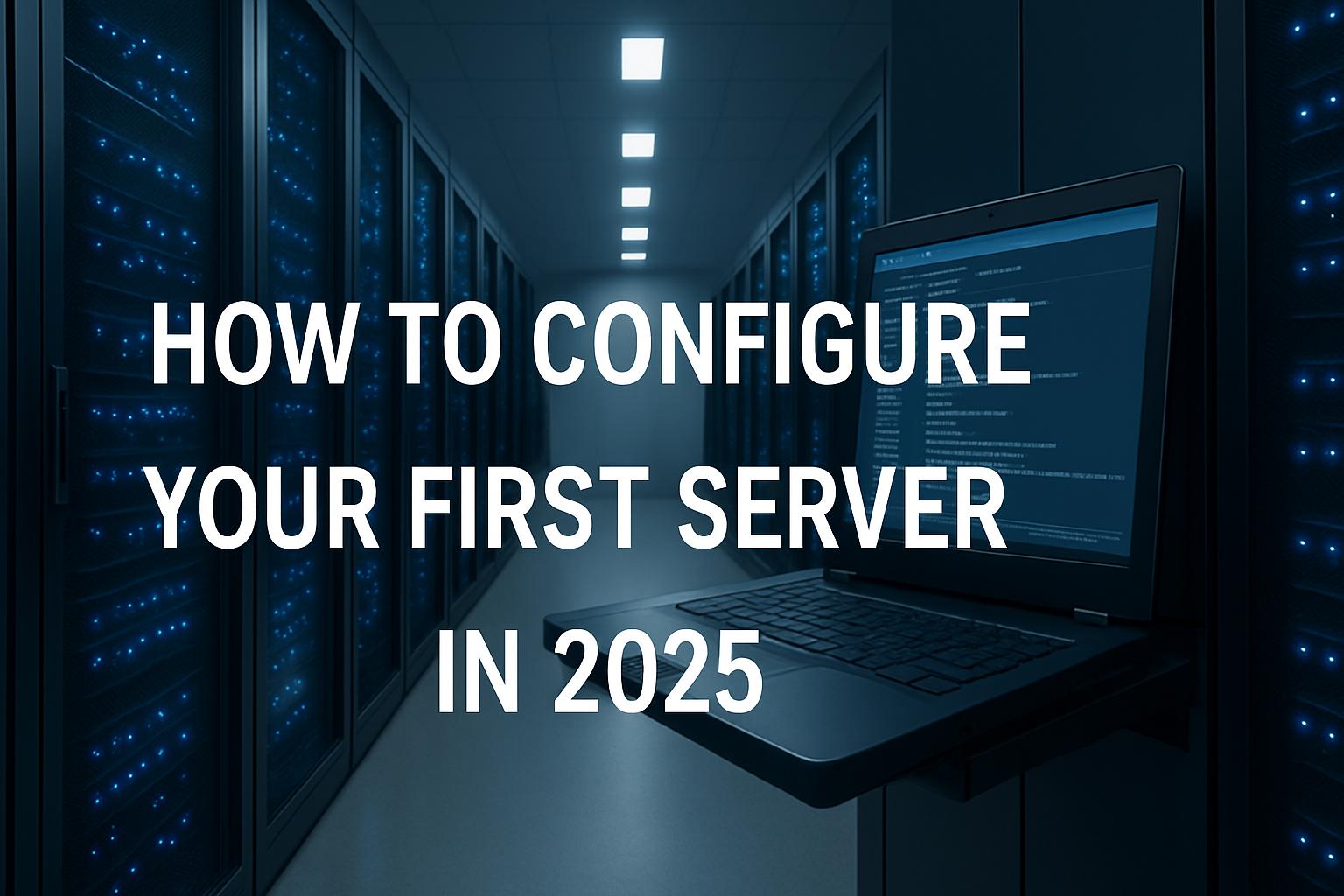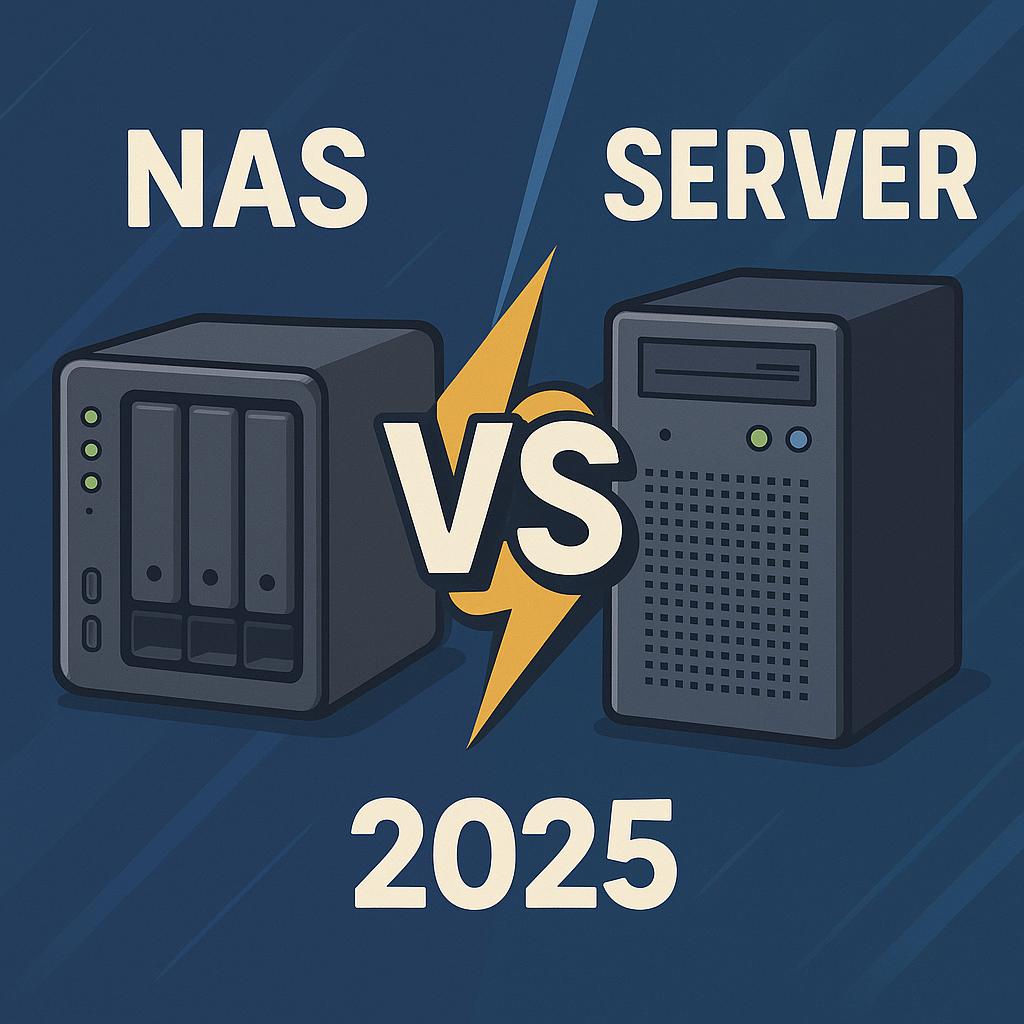- Choosing The Best Servers for Small Business
Choosing The Best Servers for Small Business
Choosing the Best Servers for Small Business in 2025 can feel overwhelming. With so many options available in 2025 — from entry-level tower servers to rack-mounted enterprise hardware — it’s easy to get lost in the specifications and technical jargon. The truth is, the best server for your business depends on your size, growth plans, and what you actually need the server to do.
In this guide, we’ll walk through the best servers for small business in 2025, compare top models from trusted vendors, and help you decide which setup fits your budget and requirements.
Why Small Businesses Still Need Servers in 2025
With the rise of cloud platforms like Microsoft Azure and Amazon Web Services, some business owners question whether they need on-premise servers at all. The answer depends on your situation:
- Servers provide control. You own the hardware and data, reducing reliance on third parties.
- Servers reduce recurring costs. Instead of paying monthly cloud fees, you make a one-time investment.
- Servers improve local performance. Hosting applications and storage onsite reduces latency.
- Servers integrate with hybrid cloud. Many businesses use servers alongside cloud platforms for resilience.
For small businesses, servers remain a cost-effective and reliable solution for file storage, applications, backups, and security.
What to Look for in a Small Business Server
Before diving into recommendations, let’s outline the key features that matter most for SMEs:
- Form Factor
- Tower servers: Easy to deploy in offices, cost-effective.
- Rack servers: Scalable, efficient for businesses expecting growth.
- Processor (CPU)
- Intel Xeon or AMD EPYC for reliability.
- Entry-level options like Intel Core i5/i7 for budget builds.
- Memory (RAM)
- Minimum 16 GB for small setups.
- 32–64 GB recommended for running multiple applications.
- Storage
- HDDs for bulk storage, SSDs/NVMe for performance.
- RAID support is crucial for redundancy.
- Networking
- At least 1GbE support.
- 10GbE options are future-proof for growing businesses.
- Scalability
- The ability to add more RAM, drives, or CPUs as your business grows.
- Price
- Expect to invest between £800 and £3,000 depending on needs.
Best Small Business Servers in 2025
Here are the top models that stand out for small business use this year.
1. Dell PowerEdge T40 (Entry-Level Workhorse)
Best for: Startups and very small offices needing basic file storage and simple applications.
- CPU: Intel Xeon E-2224G (4 cores, 3.5GHz)
- RAM: 8 GB (expandable to 64 GB)
- Storage: 1 TB HDD (supports up to 4 drives, RAID 5)
- Networking: 1 x Gigabit Ethernet
- Price Range: £800 – £1,000
The Dell PowerEdge T40 is one of the most popular entry-level tower servers for SMEs. It’s affordable, reliable, and provides enough horsepower for tasks like file sharing, print services, and light database hosting. Expansion options make it easy to grow without breaking the bank.
2. HPE ProLiant MicroServer Gen10 Plus v2
Best for: Small businesses that want a compact, quiet server for office environments.
- CPU: Intel Xeon E-2314 (4 cores, 2.8GHz)
- RAM: 16 GB DDR4 ECC (expandable to 64 GB)
- Storage: 2 x 1 TB HDDs (4 LFF bays, RAID supported)
- Networking: 2 x 1GbE LAN (with optional 10GbE card)
- Price Range: £1,000 – £1,300
This compact microserver from HPE is perfect for businesses that don’t have a dedicated server room. It’s energy-efficient, quiet, and surprisingly powerful. With built-in iLO management, you also get enterprise-grade monitoring tools.
3. Lenovo ThinkSystem ST250 V2
Best for: Businesses running multiple workloads (databases, CRM, ERP).
- CPU: Intel Xeon E-2336 (6 cores, 3.4GHz)
- RAM: 16 GB DDR4 ECC (expandable to 128 GB)
- Storage: 2 TB HDD (supports up to 8 drives, mix of HDD + SSD)
- Networking: Dual Gigabit Ethernet
- Price Range: £1,200 – £1,800
The Lenovo ST250 V2 balances affordability and power. It’s a great choice if your business is running multiple line-of-business apps and needs performance without jumping into rack servers.
4. Dell PowerEdge R350 (Rack-Mount Starter)
Best for: Growing businesses that want to scale with rack infrastructure.
- CPU: Intel Xeon E-2378G (8 cores, 2.8GHz)
- RAM: 32 GB DDR4 ECC (expandable to 128 GB)
- Storage: 2 x 2 TB HDDs (hot-swap bays, RAID 5/10 supported)
- Networking: Dual 1GbE (optional 10GbE upgrade)
- Price Range: £2,000 – £2,800
If you’re serious about growth, the PowerEdge R350 is a solid entry into rack-mounted servers. It’s designed for scalability, reliability, and continuous workloads, making it ideal for small businesses planning to expand to 50+ users.
5. Supermicro SuperServer SYS-5019C-MR
Best for: Tech-savvy SMEs that want performance at a competitive price.
- CPU: Intel Xeon E-2246G (6 cores, 3.6GHz)
- RAM: 16 GB DDR4 (expandable to 128 GB)
- Storage: 2 x 1 TB NVMe SSDs + 4 HDD bays
- Networking: Dual Gigabit Ethernet
- Price Range: £1,500 – £2,200
Supermicro is a favourite among IT professionals who prefer flexibility and customisation. The SYS-5019C-MR provides strong performance and supports advanced configurations, but it may require more technical expertise to set up compared to Dell or HPE.
6. Synology RackStation RS1221+ (Hybrid Storage Option)
Best for: Businesses that need storage-first capabilities with light application support.
- CPU: AMD Ryzen V1500B (4 cores, 2.2GHz)
- RAM: 4 GB DDR4 ECC (expandable to 32 GB)
- Storage: 8-bay NAS with RAID support
- Networking: 4 x 1GbE LAN (supports link aggregation)
- Price Range: £1,500 – £1,900 (disks extra)
While technically a NAS, the Synology RS1221+ deserves a place on this list for SMEs who mainly need robust storage with light server features. With Synology’s DSM software, it can run apps like email, databases, and backups — bridging the gap between NAS and servers.
Comparison Table
| Model | CPU | RAM | Storage | Networking | Price Range | Best For |
|---|---|---|---|---|---|---|
| Dell PowerEdge T40 | Xeon E-2224G | 8 GB (64 GB max) | 1 TB HDD | 1GbE | £800–£1,000 | Startups, simple tasks |
| HPE ProLiant MicroServer Gen10 Plus v2 | Xeon E-2314 | 16 GB (64 GB max) | 2x1TB HDD | 2 x 1GbE | £1,000–£1,300 | Quiet, compact offices |
| Lenovo ST250 V2 | Xeon E-2336 | 16 GB (128 GB max) | 2 TB HDD | 2 x 1GbE | £1,200–£1,800 | Multi-app workloads |
| Dell PowerEdge R350 | Xeon E-2378G | 32 GB (128 GB max) | 2x2TB HDD | 2 x 1GbE | £2,000–£2,800 | Scaling businesses |
| Supermicro SYS-5019C-MR | Xeon E-2246G | 16 GB (128 GB max) | NVMe + HDDs | 2 x 1GbE | £1,500–£2,200 | Tech-savvy SMEs |
| Synology RS1221+ | Ryzen V1500B | 4 GB (32 GB max) | 8 bays (HDD/SSD) | 4 x 1GbE | £1,500–£1,900 | Storage-first use |
How to Choose the Best Servers for Small Business
- Under 10 employees: Start with a tower server like Dell T40 or HPE MicroServer.
- 10–30 employees: Look at Lenovo ST250 V2 for app hosting.
- 30–50 employees: Move to rack servers like Dell R350 for scalability.
- 50+ employees: Consider hybrid setups with both servers and NAS for backup/storage.
Future-Proofing Your Server Investment
In 2025, the key to choosing wisely is thinking ahead:
- Opt for ECC RAM to ensure reliability.
- Choose servers with 10GbE support if you expect high data transfer needs.
- Look for RAID options for redundancy.
- Plan for cloud integration (backup or hybrid workloads).
Best Servers for Small Business – Final Thoughts
The best server for small business in 2025 depends on where you are today and where you want to be tomorrow.
- On a tight budget? Start with Dell PowerEdge T40.
- Need compact, quiet, and efficient? Go for HPE MicroServer.
- Want flexibility and future growth? Lenovo ST250 or Dell R350.
- Prefer customisation? Supermicro delivers.
- Need storage-heavy solutions? Synology RS1221+ bridges the gap.
Investing in the right server now means fewer headaches, better performance, and a solid foundation for your business to grow.
